The 6th Herbal Research Webinar Series 2022 was organised and hosted by Universiti Brunei Darussalam (UBD)’s Herbal Research Group online via Zoom on the 10th August 2022. Dr. Mohd Shahezwan Abdul Wahab, a senior lecturer at the Department of Pharmacy Practice at Universiti Teknologi MARA (UiTM) was invited as a guest speaker for the webinar where he presented on the topic “Herbal Medicine Use Among the Public: Challenges and Roles of Pharmacists”. The event was attended by a total of 51 participants including staff, students, alumni from different faculties and departments of UBD, Universiti Sains Malaysia, Universitas Ubudiyah Indonesia as well as HTM Pharmacy, Malaysia.
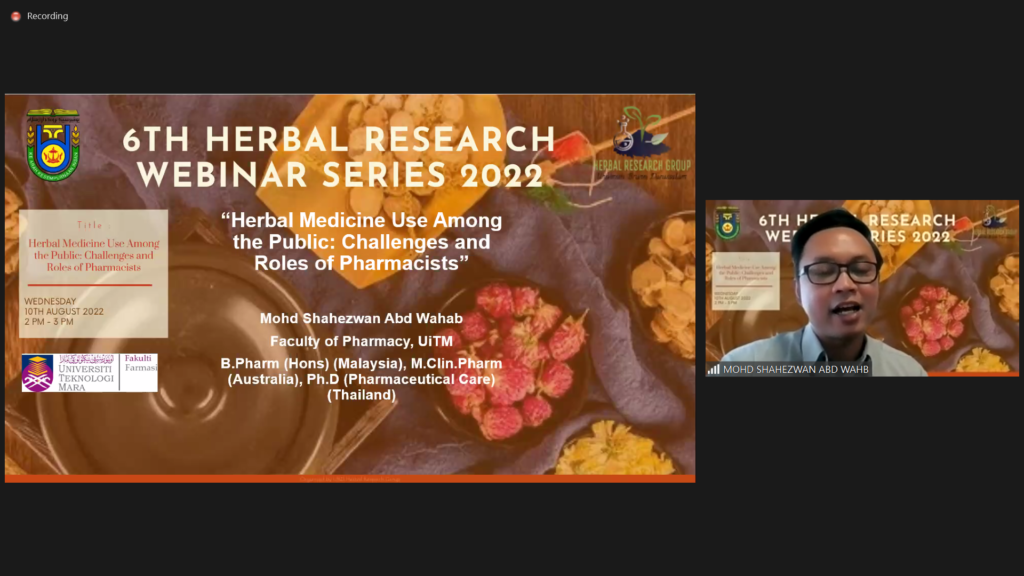
To begin, Dr. Shahezwan shared that the aims of his presentation were to provide insights on the use of herbal medicine among the public, expose participants to the key issues with using herbal medicines and provide recommendations to pharmacists on how to improve the safe use of herbal medicine. He proceeded to describe the definition of health supplements, herbal medicine/supplements and dietary supplement (HDS). He then highlighted the increasing demand for HDS in Malaysia in which a third of the market share was held by herbal and traditional supplements between 2013 – 2019. He also mentioned the increasing prevalence of the use of complementary and alternative medicine (CAM) in not only Malaysia but also in other countries including Germany, South Korea and Austria.
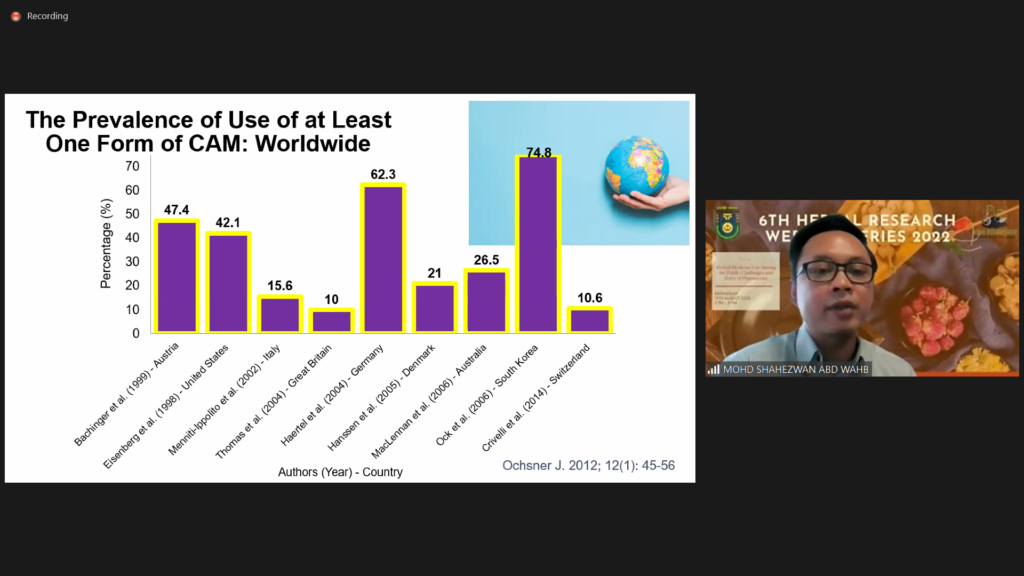
According to Dr. Shahezwan, women, older people, higher educational level and higher income people were among those who were more likely to use HDS. He then shared that the use of HDS and CAM in patients with chronic diseases such as diabetes mellitus, peripheral neuropathy and cancer were common. Despite the common belief that HDS is safe, natural and has fewer side effects, Dr. Shahezwan explained that several studies had found that HDS could cause issues such as adverse reactions, herbal medicine-drug interactions and overdosage.
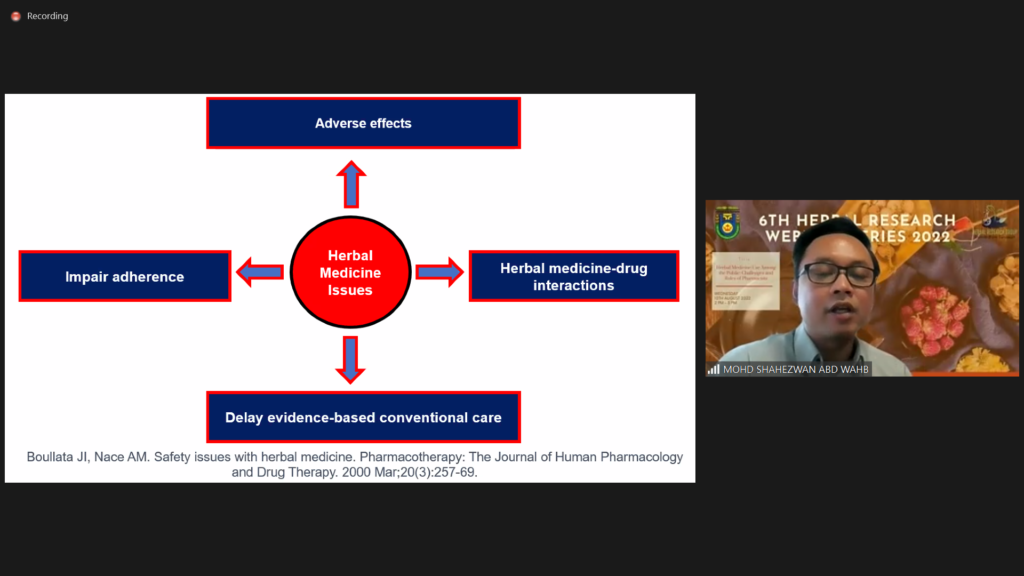
Dr. Shahezwan then shared their findings on the prevalence of HDS use in Puncak Alam, Malaysia. They found that 45.8% have used at least one type of HDS at the point survey and interestingly patients with hypertension were most likely to use HDS even though traditional medicines are not recommended to treat hypertension according to the clinical practice guidelines for hypertension management. They have also investigated that the main source of information about HDS for respondents was family and friends, and most of them did not disclose HDS consumption to their healthcare providers. From their findings, they have concluded that there are many misconceptions about the use of HDS among people due to unreliable sources of information. Last year, Dr. Shahezwan and his colleague have also conducted a study on the use of HDS to prevent COVID-19 in a Malaysian suburban town, they found that the highest number of HDS their respondents used to prevent COVID-19 was 20 products. In this study, social media and websites were the most common sources of information for HDS which may be inadequate in quality, commercially biased, and misleading. Dr. Shahezwan concluded his presentation by encouraging health care professionals to have a continuing open dialogue with patients about their use of dietary supplements.
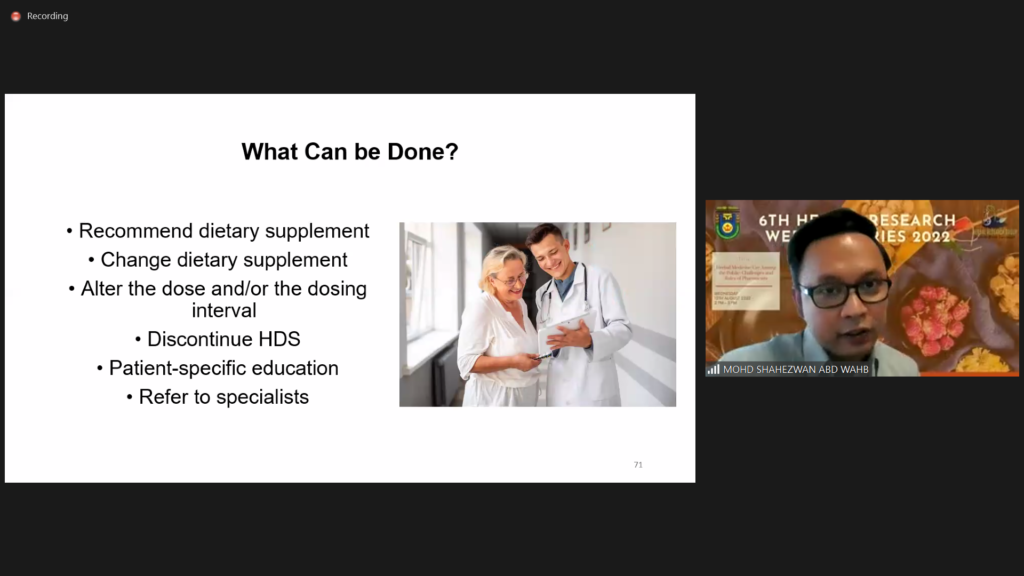
Following the conclusion of Dr. Shahezwan’s lecture, a group photo was taken with the invited guest speaker, organisers, and participants. Before ending the webinar, Dr. Shahezwan provided his response to several intriguing questions raised by the audience in a question-and-answer session.
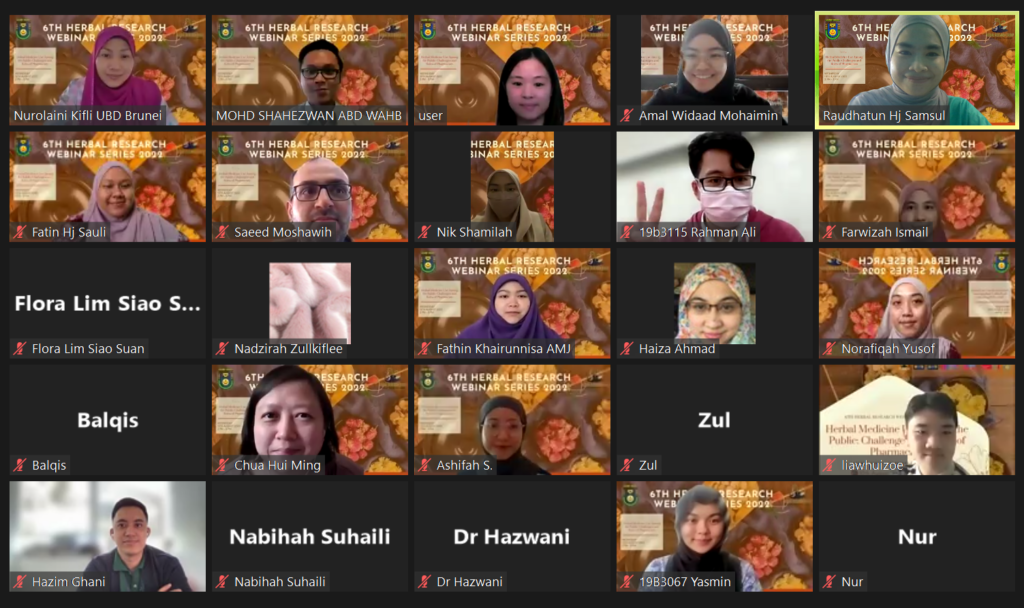
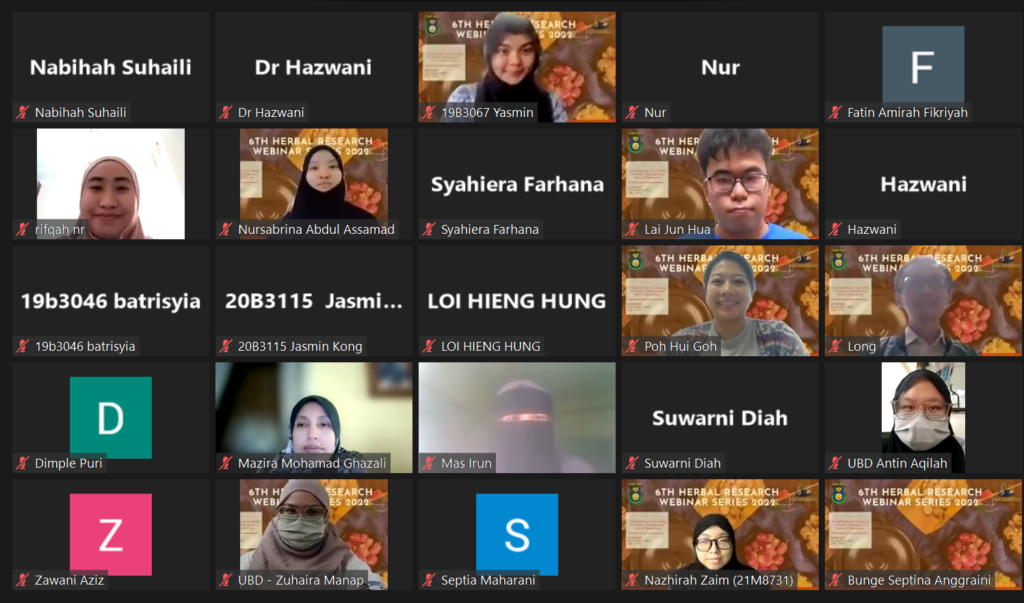
For the video recording of the 6th Herbal Research Webinar Series 2022, please see below: